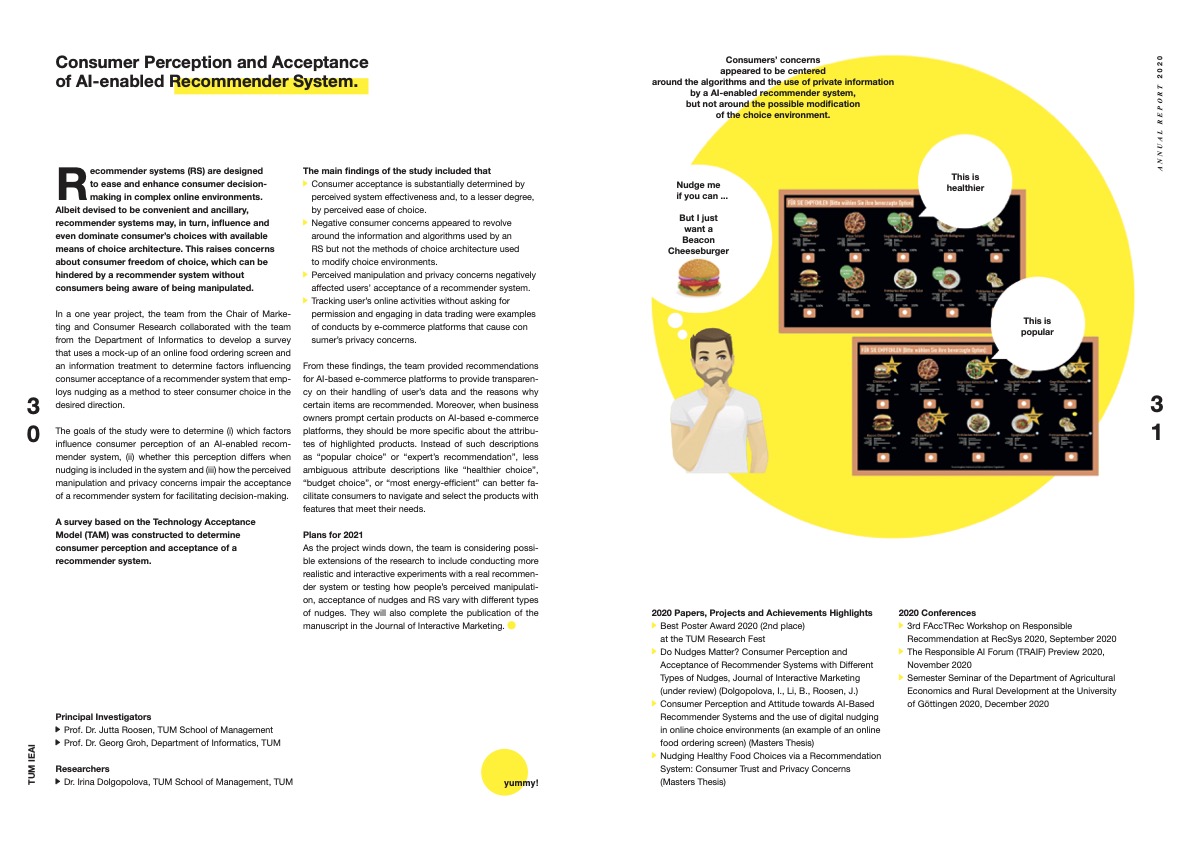Consumer Perception and Acceptance of an AI -Enabled Recommender System
Finished Project
This project investigates how consumers perceive AI-enabled technology aiding their consumption decisions, how socio-demographic and psychological characteristics are related to their acceptance and if their perception can create potential barriers in the use of AI.
Using the example of a food recommender system augmented with elements of nudging, we aim to assess whether consumers perceive the technology as increasing or decreasing their well-being. An AI-enabled recommender system is not only able to learn consumer preferences from choices made in the past, but also consumer reactions to nudges and if a given nudge is effective or not. The system can use this information to construct choice environments tailored to consumer preferences and decision-making processes. Since the system is able to influence consumer choice without the consumer’s realization of being influenced, there is potential for abuse of choice-related consumer data and ethical implication related to consumer choice autonomy.
Based on the results of the project, policy recommendations for informing consumers about the role of technology in consumer choice will be provided.





